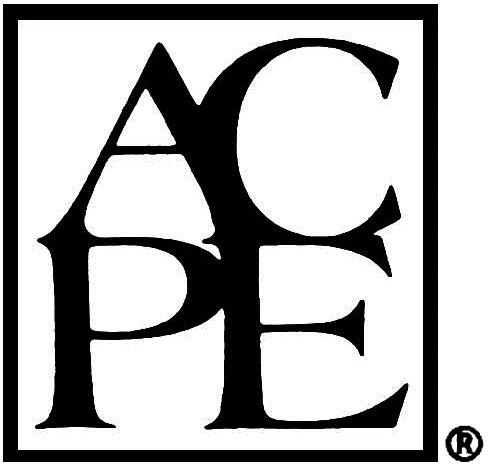Prognostic Significance of Mutations in Myeloproliferative Neoplasms
The diagnosis and management of patients with myeloproliferative neoplasms (MPN) has evolved since the identification of “driver” mutations (JAK2, CALR, and MPL mutations). JAK2, CALR, and MPL mutations are the most common “driver” mutations detected in patients with MPN, and molecular testing for these mutations should be performed as part of initial evaluation of patients with suspected MPN. The emergence of next-generation sequencing has led to the identification of mutations in several other genes that are implicated in the pathogenesis of MPN. Identification of "high molecular-risk" mutations may be helpful in decision making regarding allogeneic HCT and may also be useful to establish clonality in patients with “triple-negative” MPN that lack “driver” mutations. The development of an integrated prognostic model including some of the "high molecular-risk" mutations in addition to the three “driver” mutations would refine the prognostic stratification and classify patients into more precise subgroups. The translation of these important clinical findings into clinical practice is challenging and would require additional validation in well-designed clinical trials. Clinicians need to be informed about the recent advances in next generation sequencing to improve their understanding of the molecular landscape of MPN. Maintaining a current knowledge of recent advances and ongoing research in the field of MPN would help clinicians integrate these findings more effectively into their clinical-decision making.
This information was originally presented at the NCCN 13th Annual Congress: Hematologic Malignancies™ held in New York, New York, from September 21-22, 2018.
Target Audience
This educational program is designed to meet the educational needs of oncologists, hematologists, nurses, pharmacists, and other health care professionals who manage patients with hematologic malignancies.
Learning Objectives
Following this activity, participants should be able to:
- Review the mutation landscape of myelofibrosis (MF), polycythemia vera (PV) and essential thrombocythemia (ET).
- Describe the role of "driver" mutations in the revised 2016 WHO diagnostic criteria of myeloproliferative neoplasms.
- Discuss the prognostic significance of "high molecular-risk" mutations in patients with myeloproliferative neoplasms.
Animesh Pardanani, MBBS, PhD
Mayo Clinic Cancer Center
Disclosure of Relevant Financial Relationships
All faculty and activity planners participating in NCCN continuing education (CE) activities are expected to disclose any relevant financial relationships with a commercial interest as defined by ACCME’s, ACPE’s, and ANCC’s Standards for Commercial Support. All faculty presentations have been reviewed for adherence to ACCME’s Criterion 7: The provider develops activities/educational interventions independent of commercial interests (SCS 1, 2, and 6) by experts on the topics. Full disclosure of faculty relationships will be made prior to the activity.
Definitions
NCCN continuing education considers financial relationships to create a “conflict of interest” when an individual has both a financial relationship with a commercial interest and the opportunity to affect CE content about the products or services of a commercial interest with which he/she and/or a spouse or partner has a financial relationship.
NCCN continuing education considers “relevant financial relationships” as financial relationships in any amount occurring within the past 12 months that create a conflict of interest. NCCN does not set a minimal dollar amount for relationships to be significant. Inherent in any amount is the incentive to maintain or increase the value of the relationship.
Faculty Disclaimers
All faculty for this continuing education activity are competent in the subject matter and qualified by experience, training, and/or preparation for the tasks and methods of delivery.
Faculty presentations may include discussion of off-label use. Faculty will disclose that the use in question is not currently approved by the FDA per the product labeling.
Faculty Disclosures
The faculty listed below discloses no relevant financial relationships:
Animesh Pardanani, MBBS, PhD
NCCN Staff Disclosures
The NCCN Activity Planning staff listed below discloses no relevant financial relationships:
Robert W. Carlson, MD; Melissa Esplen; Mark A. Geisler; Kristina M. Gregory, RN, MSN, OCN; Kristin Kline Hasson; Rose Joyce; Karen Kanefield; Lisa G. Kimbro, MBA, CPA (employed by NCCN until 8/10/2018); Joan S. McClure, MS (employed by NCCN until 8/1/2018); Lisa Perfidio, MS; Shannon Ryan; Kathy Ann Smith, CMP, CHCP; Gary J. Weyhmuller, MBA, SPHR
The NCCN Activity Planning staff listed below discloses the following relevant financial relationships:
Donald Harting, ELS, CHCP
Laboratory Corporation of America (LabCorp): Equity interest/Stock Options
Katherine Pierce
Pfizer Inc.: Equity Interest/Stock Options
Boston Scientific Corporation: Equity Interest/Stock Options
The NCCN Clinical staff listed below discloses no relevant financial relationships:
Mary Anne Bergman; Hema Sundar, PhD
Physicians
National Comprehensive Cancer Network is accredited by the Accreditation Council for Continuing Medical Education (ACCME) to provide continuing medical education for physicians.
NCCN designates this enduring material for a maximum of 0.50 AMA PRA Category 1 Credit™. Physicians should claim only the credit commensurate with the extent of their participation in the activity.
Physician Assistants
AAPA accepts certificates of participation for educational activities certified for AMA PRA Category 1 Credit™ from organizations accredited by ACCME or a recognized state medical society. PAs may receive a maximum of 0.50 hour of Category 1 credit for completing this activity.
Nurses
National Comprehensive Cancer Network (NCCN) is accredited as a provider of continuing nursing education by the American Nurses Credentialing Center’s Commission on Accreditation.
NCCN designates this educational activity for a maximum of 0.48 contact hour.
Pharmacists
| National Comprehensive Cancer Network is accredited by the Accreditation Council for Pharmacy Education as a provider of continuing pharmacy education. |
NCCN designates this knowledge-based continuing education activity for 0.50 contact hour (0.05 CEUs) of continuing education credit. UAN: 0836-0000-18-113-H01-P
Available Credit
- 0.50 ACPE contact hours
- 0.50 AMA PRA Category 1 Credit™
- 0.48 ANCC contact hours
- 0.50 Participation
Required Hardware/software
To complete this activity, users will need:
- A device with an Internet connection
- One of the two latest versions of Google Chrome, Mozilla Firefox, or Safari (Internet Explorer is no longer supported)
- Adobe Flash Player and/or an HTML5 capable browser for video or audio playback
- Adobe Reader or other PDF reader software for certificate viewing/printing

 Facebook
Facebook X
X LinkedIn
LinkedIn Forward
Forward